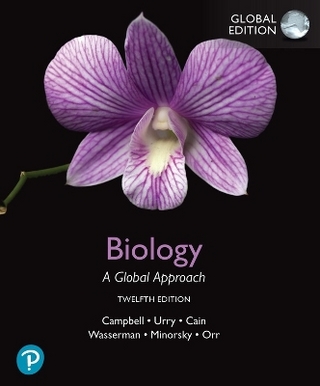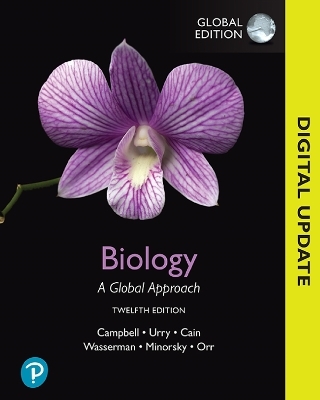
Genome Engineering for Crop Improvement
Seiten
2021
Wiley-Blackwell (Hersteller)
978-1-119-67242-5 (ISBN)
Wiley-Blackwell (Hersteller)
978-1-119-67242-5 (ISBN)
- Keine Verlagsinformationen verfügbar
- Artikel merken
About half of the world population is suffering from nutritional deficiency, which is due to either improper diet uptake, or non-availability and unaffordability of balanced nutritive food. Therefore, nutritional enrichment of common food items has been of wide interest to fulfil the demand of nutritional deficiency. For instance, development of carotenoids-rich banana and tomato, and iron-rich rice and wheat has been proposed to solve major issues of vitamin A deficiency and anaemia. Further, the distribution of important mineral elements in grains is also a major challenge for their bioavailability.
Genome Engineering for Nutritional Inprovement in Crops will take into account the progress made in managing nutritional deficiency, and compile the recent knowledge and development of diverse aspects including mineral and nutrients localization, genome engineering for mobilization and increasing bioavailability of nutrients, development of carotenoids and flavonoids rich crops by metabolic engineering, zero calorie potato, allergen free grains, and engineering for nutritional improvement of various crop plants. This book will serve as an important repository for students, academics, researchers and scientists to augment their understanding and knowledge of the application of genome engineering tools in the area of crop improvement.
Tentative table of contents -
1. Genome engineering methods: An overview.
2. Distribution of nutritional and mineral composition in important crop plants.
3. Mineral translocation in grains by genome engineering.
4. Nutritional enrichment in legumes by the utilization of genome engineering tools.
5. Genome engineering for the development of allergen free grains.
6. Development of cereals with enriched iron bioavailability.
7. Development of carotenoids rich grains by genome engineering.
8. Metabolic engineering for flavonoids rich tomato.
9. Application of genome engineering for sugar free potato production.
10. Improvement of edible oil crop using genome engineering tools.
11. Application of genome engineering methods for quality improvement in important crops.
12. Anti-nutrient reduction in cereals by genome engineering.
13. Metabolic engineering for the development of iron and carotenoid rich banana fruits.
14. Genome engineering in hairy roots for secondary metabolites production
15. Genome engineering for reduced production of anti-nutrients in crop plants.
16. Phytic acid reduction in cereals grains by genome engineering.
17. Application of genome engineering in the grapewine improvement.
18. Genome engineering for designing future fruit crops.
19. Genome engineering and food security
20. Current scenario and future perspective of genome engineering.
Genome Engineering for Nutritional Inprovement in Crops will take into account the progress made in managing nutritional deficiency, and compile the recent knowledge and development of diverse aspects including mineral and nutrients localization, genome engineering for mobilization and increasing bioavailability of nutrients, development of carotenoids and flavonoids rich crops by metabolic engineering, zero calorie potato, allergen free grains, and engineering for nutritional improvement of various crop plants. This book will serve as an important repository for students, academics, researchers and scientists to augment their understanding and knowledge of the application of genome engineering tools in the area of crop improvement.
Tentative table of contents -
1. Genome engineering methods: An overview.
2. Distribution of nutritional and mineral composition in important crop plants.
3. Mineral translocation in grains by genome engineering.
4. Nutritional enrichment in legumes by the utilization of genome engineering tools.
5. Genome engineering for the development of allergen free grains.
6. Development of cereals with enriched iron bioavailability.
7. Development of carotenoids rich grains by genome engineering.
8. Metabolic engineering for flavonoids rich tomato.
9. Application of genome engineering for sugar free potato production.
10. Improvement of edible oil crop using genome engineering tools.
11. Application of genome engineering methods for quality improvement in important crops.
12. Anti-nutrient reduction in cereals by genome engineering.
13. Metabolic engineering for the development of iron and carotenoid rich banana fruits.
14. Genome engineering in hairy roots for secondary metabolites production
15. Genome engineering for reduced production of anti-nutrients in crop plants.
16. Phytic acid reduction in cereals grains by genome engineering.
17. Application of genome engineering in the grapewine improvement.
18. Genome engineering for designing future fruit crops.
19. Genome engineering and food security
20. Current scenario and future perspective of genome engineering.
| Erscheint lt. Verlag | 15.2.2021 |
|---|---|
| Verlagsort | Hoboken |
| Sprache | englisch |
| Maße | 152 x 229 mm |
| Gewicht | 666 g |
| Themenwelt | Naturwissenschaften ► Biologie |
| Weitere Fachgebiete ► Land- / Forstwirtschaft / Fischerei | |
| ISBN-10 | 1-119-67242-2 / 1119672422 |
| ISBN-13 | 978-1-119-67242-5 / 9781119672425 |
| Zustand | Neuware |
| Informationen gemäß Produktsicherheitsverordnung (GPSR) | |
| Haben Sie eine Frage zum Produkt? |
Mehr entdecken
aus dem Bereich
aus dem Bereich
Online Resource (2024)
Pearson Education Limited (Hersteller)
39,95 €
Online Resource (2024)
Pearson Education Limited (Hersteller)
63,75 €

